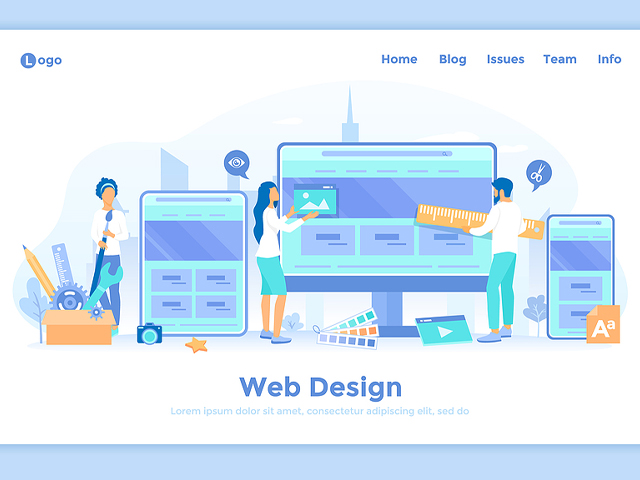
If you are a data scientist starting out, one of the things you will need to decide is what kind of work environment you prefer. Would you rather work in academia or industry? Not everyone has a simple time making this decision.
Don't worry if this question has brought you some stress. It is normal to consider all the options once you complete your formal education and to possibly be confused about which career path will best suit your personality and lifestyle. Read further to breakdown some of the key differences in these diverse work environments
Deciding If Industry or Academia Is A Better Fit For You
The following factors can help you decide which career path will be more promising:
Know your priorities and determine what matters to you.
Are you looking for intellectual freedom? Do you have salary expectations? How flexible do you want the job to be? It is vital to dig deep and answer these questions about what you value to make the best decision.
How would you prefer to spend your time at work in your daily routine?
Do you desire to teach students? Are you looking to publish your research? Do you want to collaborate with a team? Would you like to travel? Are you ready for continual fundraising and reporting? How are your presentation skills and reporting techniques? Are you ready to review items often? Are you willing to negotiate?
Understand your strengths.
Do you enjoy working in a structured environment? Are you capable of managing your time proactively? Do you thrive in a process-oriented atmosphere? When you know your strong points and your weaknesses, there will be more direction to help you increase your potential.
What is your personality type?
Are you one who enjoys working independently? Do you like being a team player and working with others? Are you fine with sharing your success with a team or is self-promotion more your style? Understanding these key personality traits can help you figure out which job situation will suit you best.
Define your long-term goals.
What does your future look like in 5, 10, or 20 years? Knowing where you would like to end up long-term can help you make some choices for your next career steps. Of course, these decisions don't have to be final. There are more opportunities to be to work cohesively between both fields now more than ever.
Be honest and stay true to yourself.
Think about what you are most passionate about. You will be able to find success in your future if you remain true to yourself regardless of which route you take.
Industry Options
An industry job can pertain to numerous things. This term encapsulates all the research work that happens external to universities. Some of the popular location's professionals work in are mid-size businesses, small biotech start-ups, and international corporations.
Typically, the work scope is focused on specific research that offers a clinical, direct value. Industry jobs require a business-minded approach. You need to create projects that meet the goals of the company as you support their business plan.
Collaboration
Of course, research in academia is often team-work oriented and very collaborative. There is a phenomenal opportunity for research and cross-disciplinary collaboration in an academic atmosphere. Others may prefer to work more privately and have the freedom to decide with who and when you work together.
Industry locations feature researchers working toward a shared, common goal. In the field of drug discovery, for example, there is tremendous collaboration across many disciplines and functional locations. Academia researchers are commonly very competitive; however, researchers need to be able to work as team players and be masters of collaboration.
Flexibility
One of the appealing parts of an academic work atmosphere is having scheduling freedom and flexibility. You can choose when to do research, when to teach and your publishing schedule. Being able to allocate your time as you see fit and not answer to anyone is a huge draw. However, all this freedom means you have to excel at prioritizing tasks and have stellar time management skills.
Usually, the research lab in a business organization is fairly structured and generally revolves around a 9-5 workday. Certain people enjoy this structure and utilize it to obtain optimum productivity.
Workplace Culture
There are shared demands and pressures regardless of which route you work in. Academics are under enormous pressure to be self-starters who can publish their findings to advocate and promote their focus. They are commonly trying to obtain funding and become published.
The pressures in an industry atmosphere are more driven by deadlines. Teams work on problem-solving for business-focused issues and integrate science to develop solutions. There are often strict timelines to meet company goals and deliver larger projects. It is essential for those working in the industry to be proficient at communication and to have superb people skills as they will be collaborating on many projects.
The work pace additionally differs between academia and industry. In the realm of developing medications and fast-paced pharmaceuticals, academic timelines are generally longer and more focused on education and long-term goals.
Intellectual Freedom
Academic professionals are free from short-term deadlines and can have intellectual freedom. They are not required to answer to those who are establishing the research goals. This enables them to choose where they would like to spend their time and how to organize their time. This freedom additional requires the responsibility to secure resources and funding.
Within the industry setting, most of the work is completed on a timeline that is directed by the business or product goals. Some people prefer this clear focus and direction. Other researchers may find it hinders their capacity to investigate the items that personally interest them. One of the industry benefits is that the larger organization will deliver the funding and the fancy resources required for the job.
Individual Impact
In academia, you most likely will not have monthly reports to complete, quarterly deadlines to consider, or a superior boss to who you are directly working for and accountable to. This provides you more opportunity to earn recognition and create an individual impact for your personal work compared to working in the industry. Here, you are more like an individual member working on behalf of a business.
On the contrary, academics may have issues with having their ideas adopted and practiced. Industry researchers complete work that is typically motivated directly by business goals. The results from researchers in industry atmospheres are generally used immediately and are impactful right away.
To be successful in the industry, a person has to be able to share credit and work as a member of the team. This collaborative effort can remove some of the pressure of having to achieve results individually.
Responsibilities
There are a variety of careers in academia, often based on the size of the school. In a typical research career, many academic professionals have the following responsibilities in their routine:
- Mentoring students
- Grant applications
- Conducting service within their department
- Publishing Papers
- Completing self-directed research
- Teaching classes
Career Advancement
There are two main directions an academic research scientist may take, working as an academic staff scientist or navigating toward professorship and tenure. If one achieves tenure, job security is practically secured.
There are wider job options in an industry career ranging from working in development or product marketing or research. Industry opportunities enable you to climb the ladder to become a project manager and take care of larger teams.
Salary
Typically, industry scientists earn more on average compared to academic researchers. It is estimated that scientists who work in industry make approximately thirty percent more compared to those in academia.











